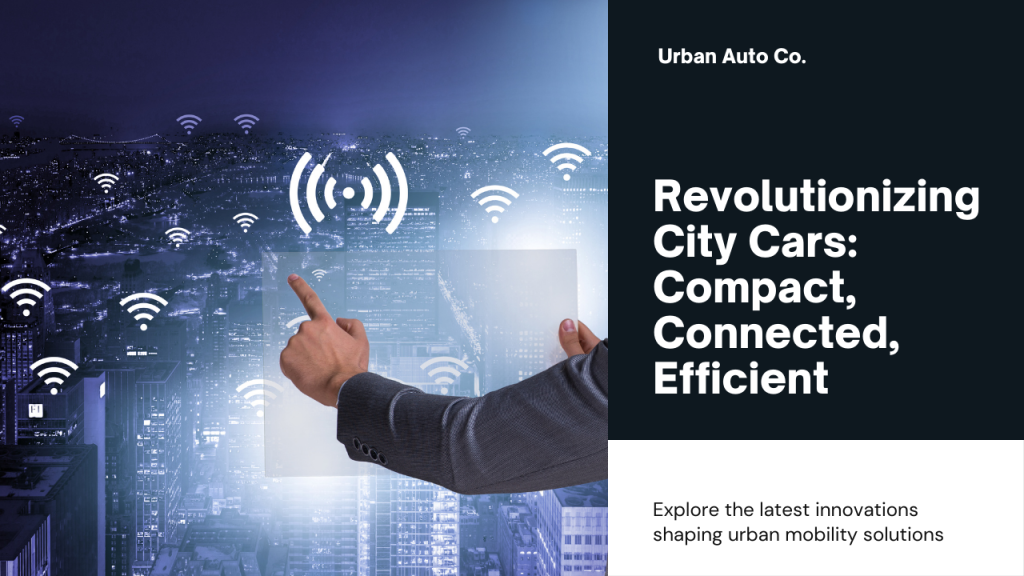
City cars are designed to navigate urban environments with agility, efficiency, and connectivity. This article will examine the latest trends in compact vehicles, highlighting how automakers are integrating smart technology and urban-friendly features to cater to urban dwellers.
Compact Electric Vehicles
In response to growing urbanization and environmental concerns, automakers are introducing compact electric vehicles (EVs) tailored for city driving. Models like the Nissan Leaf and BMW i3 offer zero-emission transportation with compact dimensions that are well-suited to navigating narrow city streets and crowded parking spaces. The availability of fast-charging infrastructure in urban areas further enhances the practicality of electric city cars, allowing drivers to recharge quickly and conveniently.
Urban-Friendly Design and Maneuverability
City cars prioritize compactness and maneuverability, making them ideal for navigating congested city centers. Features such as tight turning radius, park assist systems, and compact exterior dimensions enable drivers to navigate tight spaces and maneuver through traffic with ease. Automakers like Fiat and Smart design their city cars with urban lifestyles in mind, ensuring that drivers can navigate urban environments efficiently without sacrificing comfort or style.
Connectivity and Infotainment
Smart technology plays a crucial role in enhancing the connectivity and convenience of city cars. Touchscreen displays, smartphone integration, and voice-activated controls allow drivers to stay connected, entertained, and informed while on the move. Features such as real-time traffic updates, parking availability notifications, and remote vehicle management apps further enhance the urban driving experience by providing drivers with valuable information and control at their fingertips.
Eco-Friendly Features and Efficiency
City cars are increasingly incorporating eco-friendly features to minimize environmental impact and reduce operating costs. Efficient gasoline engines, hybrid powertrains, and lightweight materials contribute to lower fuel consumption and emissions, making city cars a sustainable transportation option for urban commuters. Brands like Toyota with the Yaris and Honda with the Fit emphasize fuel efficiency and eco-friendly design in their compact vehicle offerings, appealing to environmentally conscious consumers in urban markets.
Compact city cars are evolving with innovations in electric mobility, urban-friendly design, smart connectivity, and eco-friendly features. As cities continue to grow and urban mobility challenges intensify, these vehicles offer practical solutions for navigating urban environments while reducing environmental impact. With advancements in technology and design, compact city cars are poised to play a crucial role in shaping the future of urban transportation, providing drivers with efficient, connected, and sustainable mobility options.

